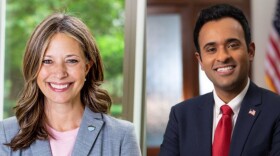By local estimates, around 15,000 immigrants from Haiti have been living in Springfield, a city with a population of less than 60,000, according to 2020 census data.
The award-winning team of the Ohio Public Media Statehouse News BureauTM presents insights and "the scoop" on the story behind the scenes of Ohio politics.










